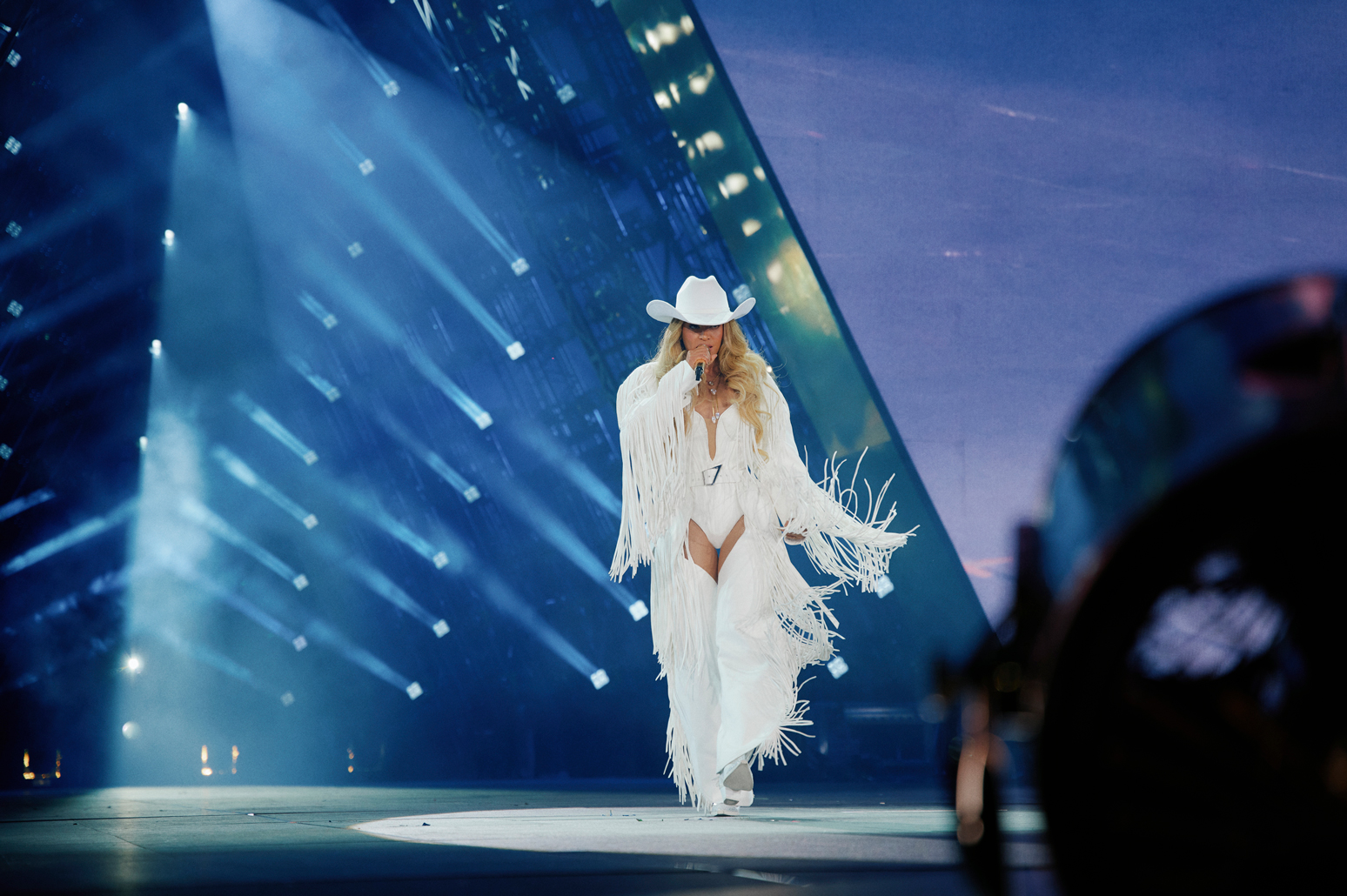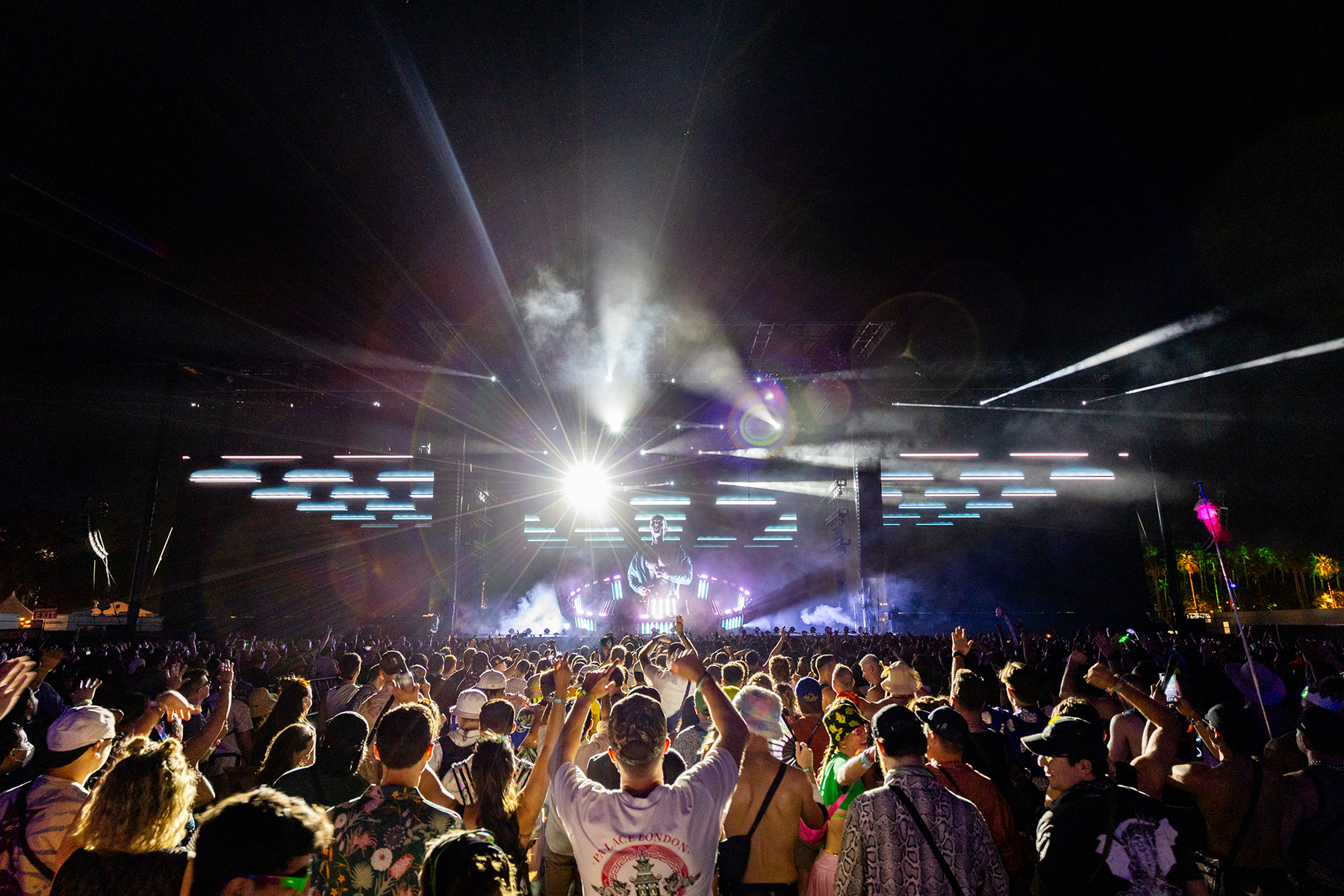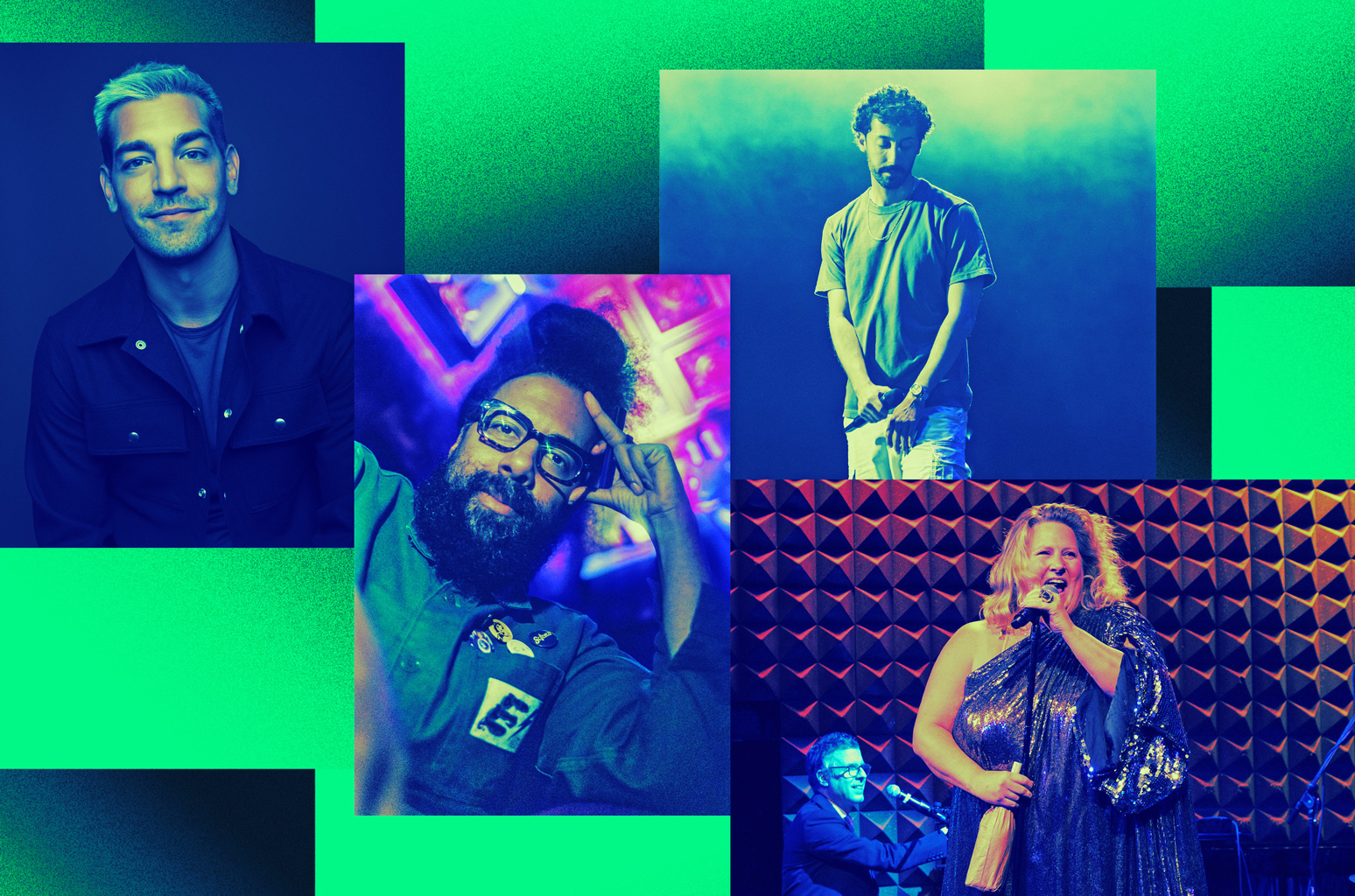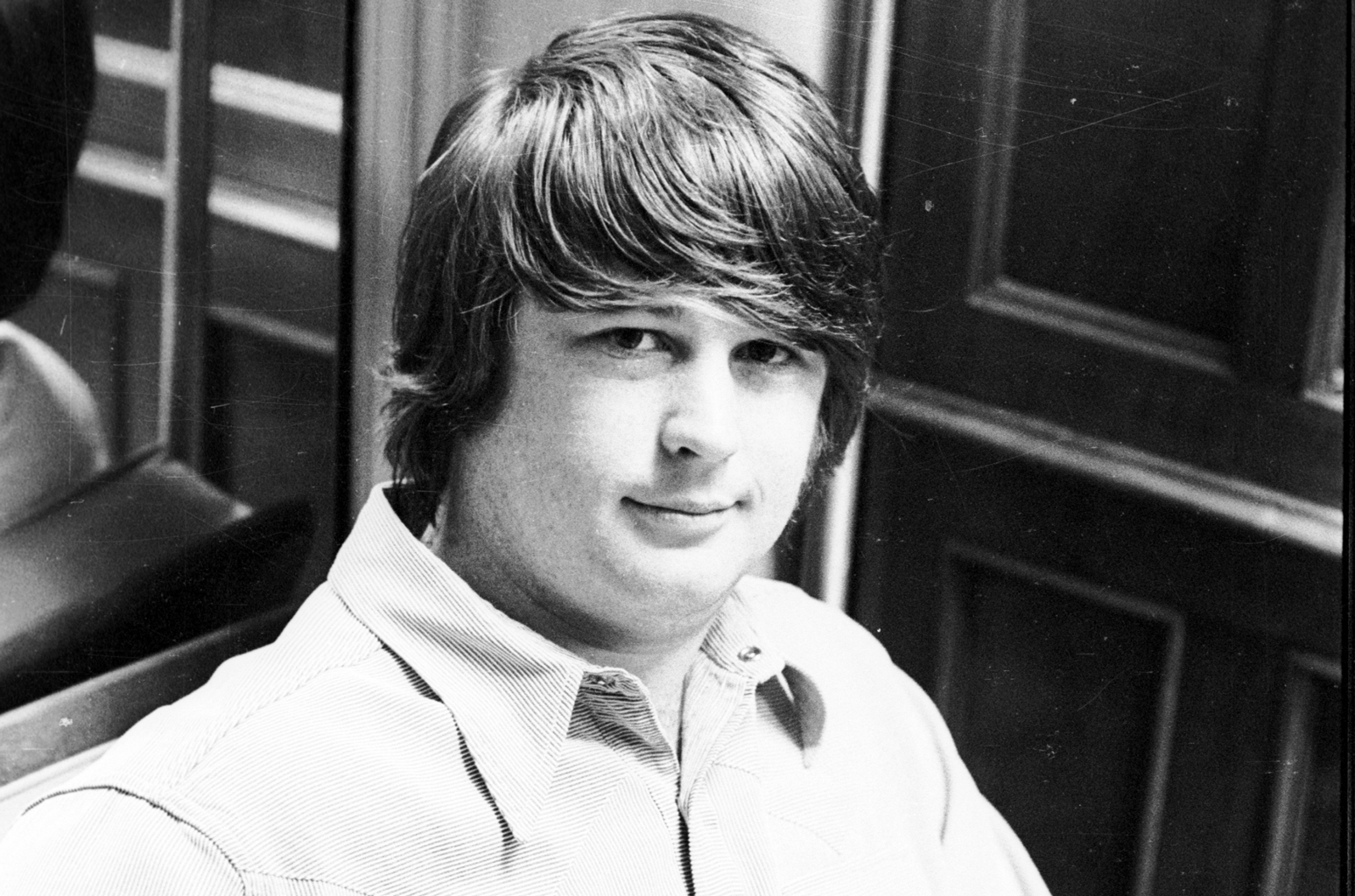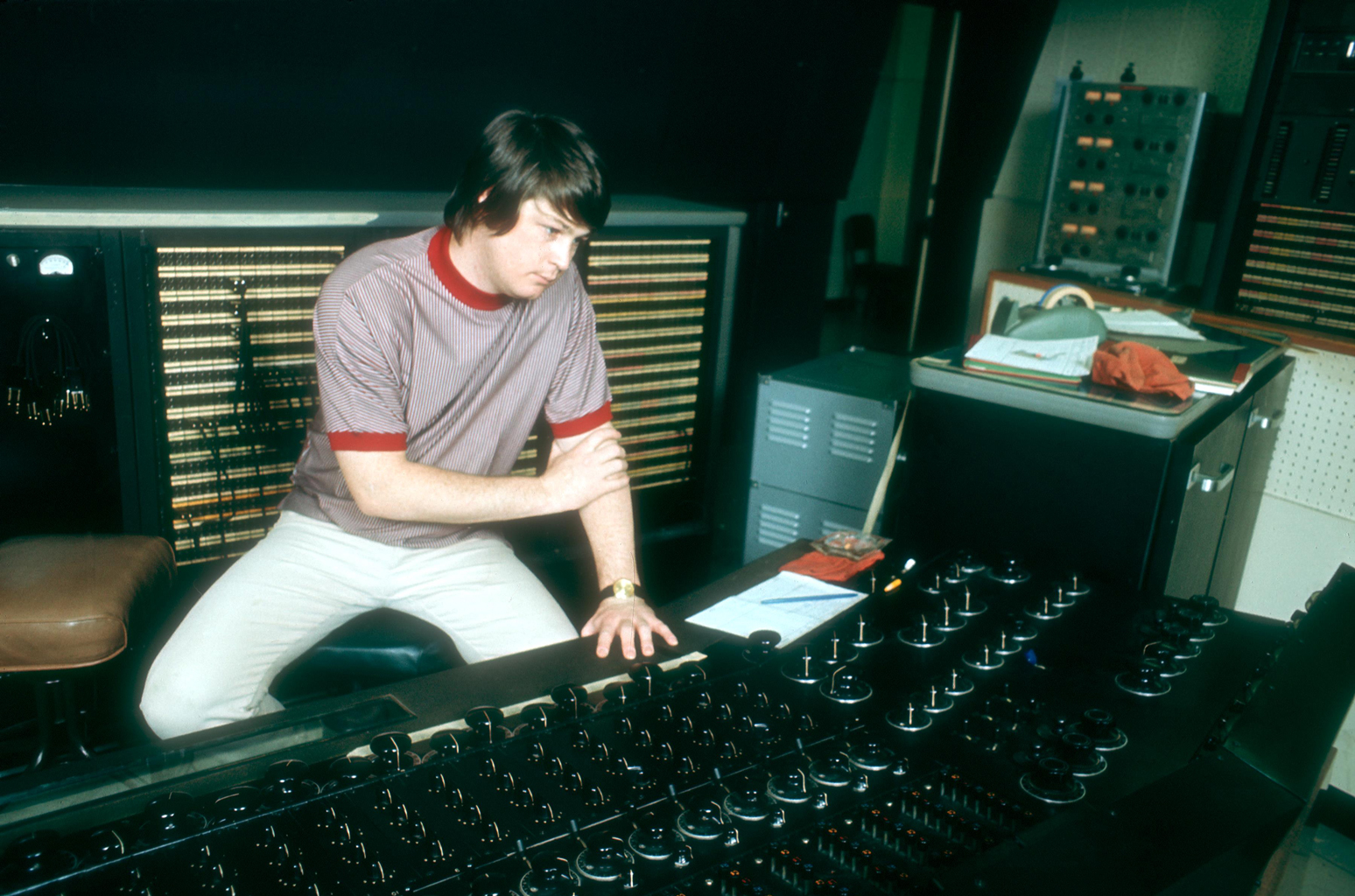Entertainment
Forever No. 1: Roberta Flack’s ‘Feel Like Makin’ Love’
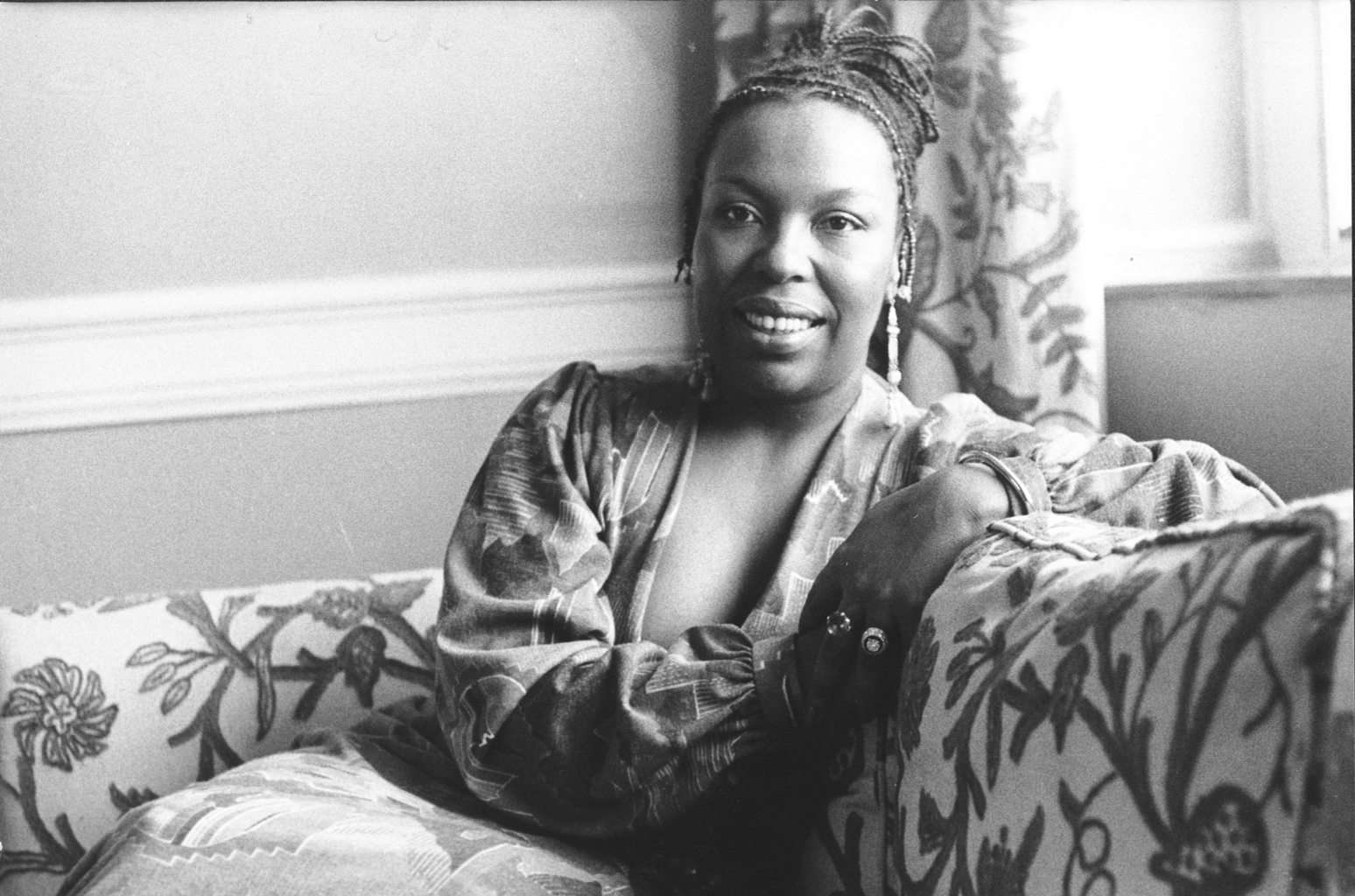
Forever No. 1 is a Billboard series that pays special tribute to the recently deceased artists who achieved the highest honor our charts have to offer — a Billboard Hot 100 No. 1 single — by taking an extended look back at the chart-topping songs that made them part of this exclusive club. Here, we honor Roberta Flack, who died on Feb. 24 at age 88, by looking at the singer’s last of three No. 1 hits as a recording artist: the lilting paean to romance, “Feel Like Makin’ Love.” (In case you missed it, here’s a look at her first No. 1, “The First Time Ever I Saw Your Face” and at her second No. 1, “Killing Me Softly With His Song.”
The year was 1974. President Richard Nixon had resigned and Gerald Ford stepped up to fill the vacancy. Muhammad Ali and George Foreman punched their way through the Rumble in the Jungle in Zaire. Stephen King published his debut novel Carrie, while the year also witnessed the birth of future Academy Award winner Leonardo DiCaprio. And alongside various musical moments such as David Bowie launching his Diamond Dogs tour and Dolly Parton releasing the Jolene album, Roberta Flack set a record as the first female solo artist to reign at No. 1 on the Hot 100 within three consecutive years, 1972-1974, with “Feel Like Makin’ Love.”
Flack first donned the Hot 100 crown with breakthrough hit “The First Time Ever I Saw Your Face,” featured on her now platinum-certified 1969 debut album for Atlantic, First Take, and in the 1971 Clint Eastwood film Play Misty for Me. Coming off the top five pop and R&B chart success of the iconic duets album Roberta Flack & Donny Hathaway, Flack captured the singles throne once again in 1973 with her career-cementing ballad “Killing Me Softly With His Song” from her multiplatinum, similarly titled fourth solo album, Killing Me Softly. Then in 1974 Flack completed the No. 1 trifecta with “Feel Like Makin’ Love,” the first single from the same-titled fifth solo album released a year later.
As has been the case with various songs-turned-classics over the years, “Feel Like Makin’ Love” stemmed from a casual comment that immediately sparked the writer’s imagination. In this instance, veteran singer-songwriter Eugene McDaniels (best known for his 1961 top five Hot 100 hit “A Hundred Pounds of Clay,” as well as the jazz standard “Compared to What”) had invited his assistant Morgan Ames to join him and his family for a mini-vacation at his in-laws’ cabin in Lake Arrowhead, Calif. But after only one day, Ames decided to leave. As relayed in 1993’s The Billboard Book of Number One Rhythm & Blues Hits, when McDaniels asked why she was departing, Ames told him, “Gotta get back to town. I feel like makin’ love.” To which McDaniels replied, “’See ya!’ And [I] wrote the song. It took me 25 minutes.”
McDaniels and Flack had already collaborated before he brought “Feel” to her attention. She’d covered her mentor Les McCann’s aforementioned McDaniels-penned protest classic “Compared to What” on First Take as well as other McDaniels compositions such as “Reverend Lee” from second album Chapter Two. After McDaniels called her about “Feel,” Flack flew to Los Angeles and rode with him to Lake Arrowhead, where they worked on the song for a few days. Then Flack met up with McDaniels a couple of weeks later at Bell Sound Studios in New York. Hired for the three-hour recording session were noted musicians Bob James (piano), Idris Muhammad (drums), Gary King (bass) and Richie Resnicoff and Hugh McCracken (guitars).
Atlantic’s Joel Dorn, who had produced Flack’s earlier albums, did a remix of “Feel” before the single’s actual release. However, according to The Billboard Book, Flack rejected it. Instead, under the pseudonym Rubina Flake, she created another mix. It’s this version — also marking Flack’s debut as a producer — that was ultimately released.
Right from its opening strains, “Feel Like Makin’ Love” immediately captures the euphoria of being romanced and loved. The track’s mellow, cha-cha vibe subtly underscores the give-and-take inherent in that interplay, while Flack’s ethereal yet measured vocals indelibly outline the simple little moments that can relight Cupid’s flame. As with the song’s second verse, which begins: “When you talk to me/ When you’re moanin’ sweet and low …” then followed by the infectious, sing-along chorus: “That’s the time/ I feel like makin’ love to you/ That’s the time/ I feel like makin’ dreams come true.” Looking back, it’s also interesting to note that “Feel Like Makin’ Love” was released a year after Marvin Gaye’s similarly seductive (and also Hot 100-topping) “Let’s Get It On” signaled a societal shift, as it upended long-held taboos about blatant references to sex in music.
“Feel Like Makin’ Love” replaced John Denver’s “Annie’s Song” atop the Hot 100 on the chart dated August 10, 1974, before being pushed out the next week by Paper Lace’s “The Night Chicago Died.” In addition to topping the Hot 100, “Feel Like Makin’ Love” spent five weeks and two weeks at No. 1, respectively, on Billboard’s R&B and Adult Contemporary charts. Nominated for three Grammy Awards — record of the year, song of the year and best female pop vocal performance — the song would go on to be covered by a who’s who of R&B and jazz artists over the decades, including D’Angelo, George Benson, Johnny Mathis and Gladys Knight & the Pips. (It also preceded Bad Company’s identically titled power ballad “Feel Like Makin’ Love,” which would become a Hot 100 top 10 hit and signature song for the classic rockers the following year.)
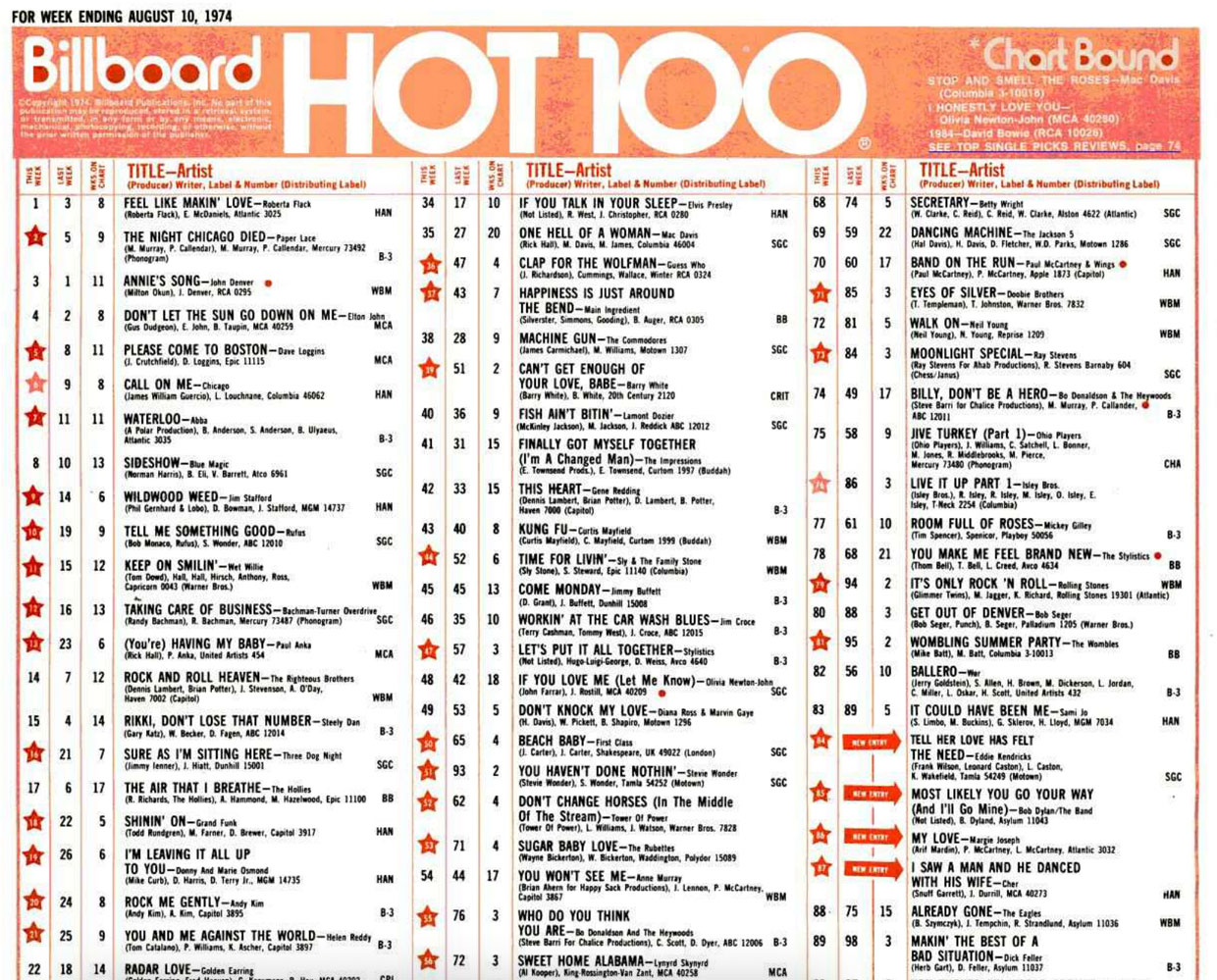 Hot 100
Hot 100
“Feel” doubled as the title track of Flack’s fifth studio album. Released in 1975, the self-produced nine-track project also featured the Stevie Wonder-penned “I Can See the Sun in Late December.” And while the album reached No. 6 on Billboard’s Top R&B/Hip-Hop Albums chart and No. 11 on Top Jazz Albums, it peaked at only No. 24 on the Billboard 200. Also of note: by the year of the album’s release, the only other women who had achieved three No. 1s on the Hot 100 were Cher, Connie Francis and Helen Reddy. But Reddy was the only other one to have done it in consecutive years, and Flack beat her to the achievement by four and a half months.
Flack went on to release another seminal album, 1977’s Blue Lights in the Basement. The set included the Grammy-nominated crossover hit “The Closer I Get to You” with Hathaway. That was followed three years later by her ninth studio album, Roberta Flack featuring Donny Hathaway. Originally intended as a second duets album by the pair, the project only features the posthumous vocals of Hathaway, who had died a year earlier.
By the mid-‘80s, however, Flack’s chart prominence was waning. Her last studio release was a Beatles cover album, 2012’s Let It Be Roberta. And while she had begun touring again in 2008, a stroke in early 2016 ended her performing career. Six years later, a spokesperson confirmed the singer had been diagnosed with amyotrophic lateral sclerosis (ALS). She died peacefully at 88 on Feb. 24, with no official cause of death disclosed.
Over the course of her innovative, multi-genre career, Flack scored a total of 18 Hot 100 hits and landed four albums in the top 10 on the Billboard 200 album charts, as well as more than two dozen charting hits on the Hot R&B/Hip-Hop Songs chart. A four-time Grammy winner, she received the lifetime achievement awards from the Recording Academy in 2020 and the Jazz Foundation of America in 2018. Her additional accolades include a star on the Hollywood Walk of Fame. Flack also never forgot her early beginnings as a teacher: She established the Roberta Flack Foundation in 2010 to help young people fulfill their dreams through education/mentorship and wrote the 2023 children’s book, The Green Piano: How Little Me Found Music.
Entertainment
Tim Dillon Fired From Riyadh Comedy Festival for Saudi Slavery Remarks: ‘They Didn’t Like That’
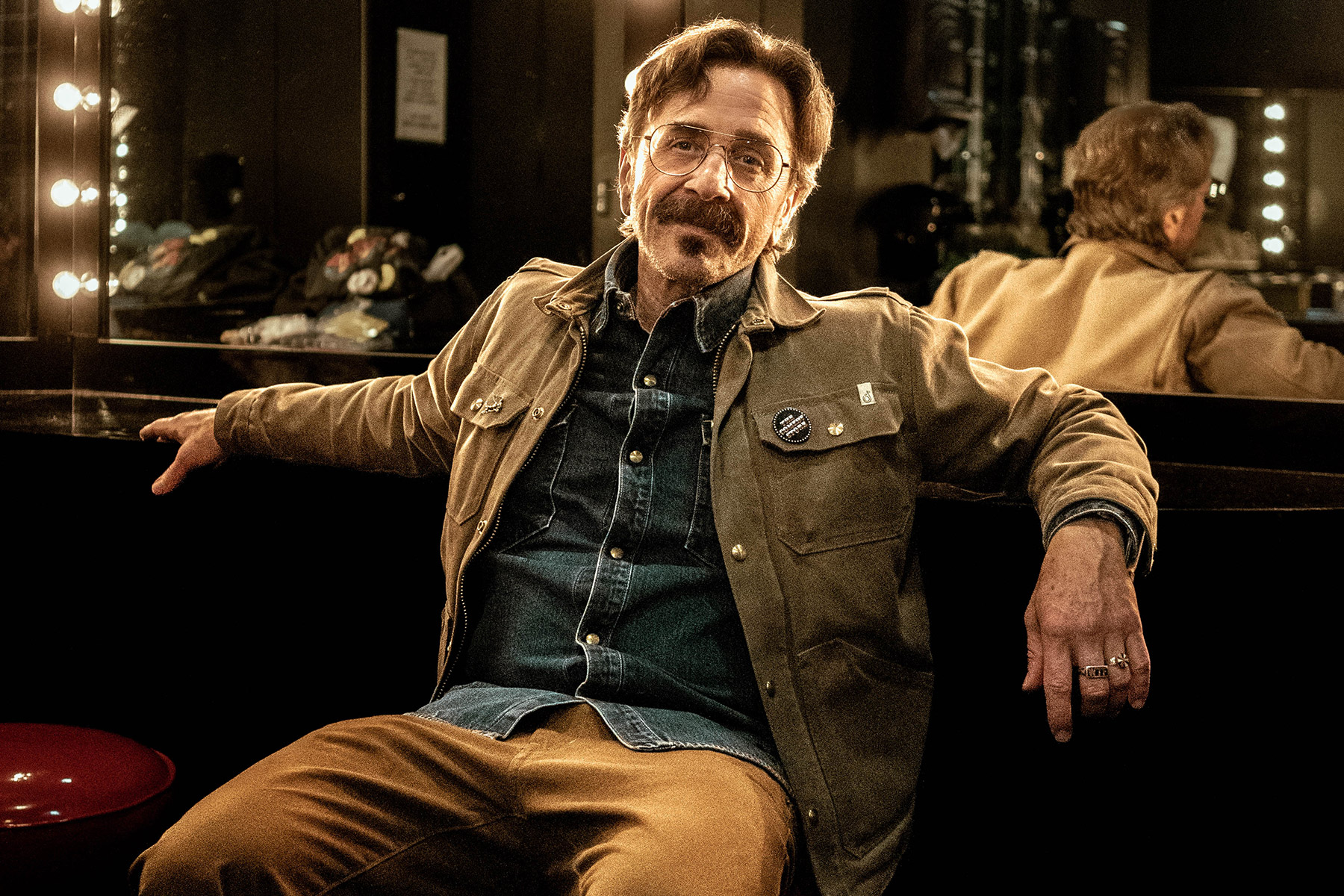
Tim Dillon will not be traveling to the Riyadh Comedy Festival next month. The California comedian and host of The Tim Dillon Show podcast says he was fired from the Oct. 8 Saudi Arabia festival for comments he made about the country on Joe Rogan‘s podcast.
Besides losing a $375,000 payday (an amount Dillon confirmed to Rogan), he also lost a nearby warm-up gig in Dubai two nights before his Riyadh appearance after mixing up the Arab emirate with Abu Dhabi (the rival cities are both part of the United Arab Emirates).
“I mixed them up — apparently this is a big deal over there. This is a real problem,” he said on a recent episode of his podcast. “This is not a malicious slander. It’s a mistake.”
The Riyadh Comedy Festival — which mostly takes place at the Bakr Al-Sheddi Theatre and ANB Arena from Sept. 25 to Oct. 9, features a number of top tier comedians including Dave Chappelle, Bill Burr, Gabriel Iglesias, Aziz Ansari, Kevin Hart, Jeff Ross, Chris Distefano, Tom Segura, Jo Koy, Sam Morril, Hannibal Buress, Andrew Schultz, Sebastian Maniscalco, Whitney Cummings, Jimmy Carr, Louis CK, Pete Davidson, Russell Peters and Chris Tucker.
“Supposedly, MBS is a fan of mine,” Dillon said two weeks ago on the Joe Rogan Experience podcast, referring to Saudi head of state Mohammed Bin Salman.
Dillon was reportedly fired from the festival for claiming that Saudi Arabia relies on slave labor — a controversial take on the country’s foreign laborers laws that some groups, including Human Rights Watch, have criticized as “slavery-like.” Legally, slavery was abolished in the Kingdom in the 1960s.
Dillon said the slavery jokes were a misunderstanding with his Saudi hosts, saying on his podcast, “I was defending them for having slaves. I literally said, ‘Slaves are hard workers and for the most part agreeable.’ But they didn’t like that.”
“You can literally support somebody too much,” he added. “In life, this happens. Too many compliments; too much support — and then they turn on you.”
He clarified his comments further, noting, “If i was a slave — not that I want to be one, but if I was and I built this really nice thing, I might say to my slave children, ‘Daddy built that,'” concluding, “Apparently this got to the people in Saudi Arabia and they were unhappy about it.”
The Riyadh Comedy Festival opens Sept. 25 with performances by Burr, Maz Jobrani and Andrew Santino and Bobby Lee from the Bad Friends podcast. More here.
Entertainment
Wilson Phillips, Kenny Loggins & More to Perform at Charity Concert Honoring Brian Wilson & The Beach Boys
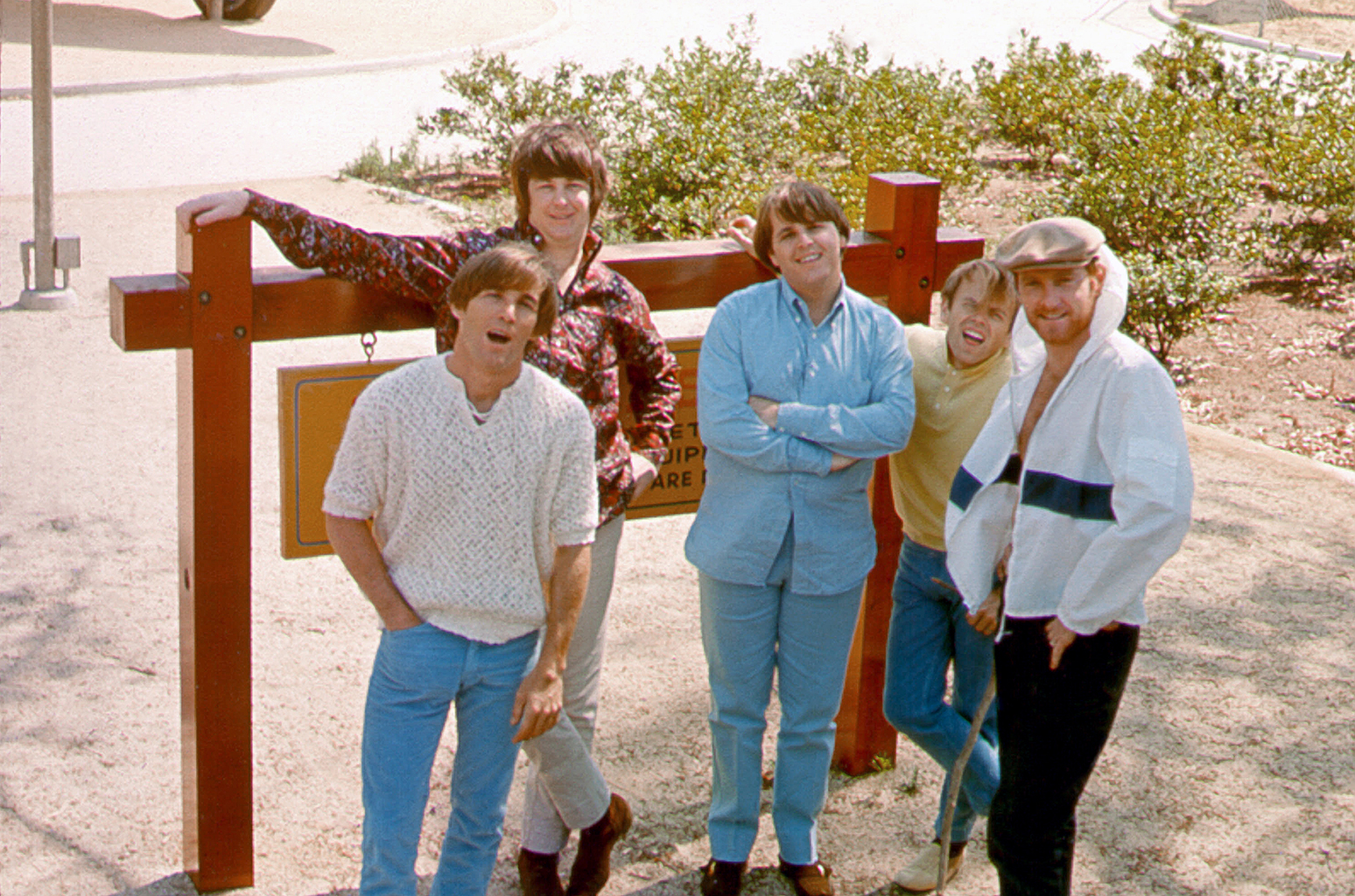
Wilson Phillips, Kenny Loggins, David Pack of Ambrosia and more are set to perform at a charity concert celebrating the music of Brian Wilson and The Beach Boys on Saturday, Sept. 27 at the Granada Theatre in Santa Barbara.
Wilson Phillips features two of Wilson’s daughters, Carnie and Wendy Wilson, as well as Chynna Phillips, the daughter of John and Michelle Phillips. The concert will also feature Brian Wilson’s grandchildren, so it will spotlight three generations of the Wilson family.
The concert, dubbed An All-Star Tribute to the Music of Brian Wilson & Songs of The Beach Boys, will feature the Folk Orchestra of Santa Barbara. Other guest performers are expected to include The Honeys; former members of The Beach Boys and the Brian Wilson Band; and keyboardist Don Randi (The Wrecking Crew); with appearances by Rosemary Butler (Jackson Browne), Ken Stacey (Elton John), Hunter Hawkins (Kenny Loggins), Carly Smithson (American Idol), Alisan Porter (The Voice) and poet Stephen J. Kalinich. These acts will be backed by The Tribe Band, who will perform an array of Beach Boys favorites.
The show begins at 7:30 p.m. Here’s a link for tickets. VIP packages are also available.
Proceeds will be donated to Adam’s Angels, a local group of volunteers, and the Surfrider Foundation of Santa Barbara, dedicated to the protection and enjoyment of the world’s oceans and beaches.
Brian Wilson died on June 11 at age 82. He was the third member of the fabled group to pass, following brothers Dennis in 1983 at age 39 and Carl in 1998 at age 51.
Entertainment
AI Artist Xania Monet, Diddy Sentencing Looms, Ticketmaster Lawsuit & More Music Law News

THE BIG STORY: If you needed another clear sign that artificial intelligence is seeping into every aspect of American cultural life, here’s one: An AI artist just signed a record deal, the hallowed milestone of success for any emerging musician.
As first reported by Billboard last week, Xania Monet — the avatar of a woman named Telisha Jones who writes her own lyrics but uses Suno to create the music — inked a record contract worth millions. The deal has quickly become the talk of the industry, including from stars who have spoken out, including Kehlani, who said: “I don’t respect it.”
But…what exactly is a label buying here? It remains unclear the extent to which you can secure intellectual property rights to AI-generated songs, raising hurdles for monetizing them. And platforms like Suno are still facing trillion-dollar infringement lawsuits that essentially claim the technology itself is illegal. For more, go read our full story.
You’re reading The Legal Beat, a weekly newsletter about music law from Billboard Pro, offering you a one-stop cheat sheet of big new cases, important rulings and all the fun stuff in between. To get the newsletter in your inbox every Tuesday, go subscribe here.
Other top stories this week…
BLIGE CASE TOSSED – A federal judge dismissed a lawsuit against Universal Music Group claiming Mary J. Blige’s enduring 1992 hit “Real Love” infringed the oft-sampled 1973 funk song “Impeach the President” by the Honey Drippers, which has been used by Run-DMC, Dr. Dre, Doja Cat and many others over the years. The judge said the two songs were so different that nobody would hear the earlier song: “The songs do not sound the same.”
DIDDY SENTENCING – Attorneys for Sean “Diddy” Combs urged a federal judge to sentence him to just 14 months in prison on his prostitution convictions, asking him to reject the kind of “draconian” punishment sought by prosecutors. Because the star has already served 13 months in jail since he was arrested, that sentence would see him released almost immediately: “It is time for Mr. Combs to go home.”
LETTERS OF SUPPORT – To help make that argument, Diddy’s lawyers filed dozens of letters from supporters, pleading with the judge to show lenience toward the rapper when he sentences him next month. They came from Diddy’s mother and kids, from ex-girlfriend Yung Miami and from an executive at hip-hop label Quality Control Music — among many others.
SUNO SUIT 2.0 – Separate from the Xania Monet situation, the major record labels filed an amended version of their copyright lawsuit against the AI music firm, adding new allegations that the company illegally “stream-ripped” songs from YouTube to train its models. That’s a hugely important new claim: In a separate such lawsuit against Anthropic, a federal judge ruled this summer that AI training itself is likely a legal “fair use” but that using pirated works to do it could lead to many billions in potential damages.
FTC, YEAH YOU KNOW ME – The Federal Trade Commission filed a lawsuit against Live Nation and Ticketmaster accusing the concert giants of advertising misleading ticket prices and allowing scalpers to buy up tickets and resell them at inflated prices. The case came months after the agency sued a ticket broker that allegedly used thousands of fake Ticketmaster accounts to buy and resell tickets to Taylor Swift concerts and other events — and two years after Live Nation was hit with a sweeping monopoly lawsuit by the U.S. Department of Justice.
HYPE VID SETTLEMENT – Mike Tyson settled a lawsuit claiming he illegally used the Jay-Z, DMX and Ja Rule song “Murdergram” in an Instagram video promoting his boxing match against Jake Paul. The case was filed by Ty Fyffe, a producer and co-writer of the 1998 track who claimed that Tyson had willfully infringed his copyrights by using the song in a training video ahead of his much-hyped fight with Paul.
LOSE YOUR … CASE? – Meta urged a federal judge to dismiss a lawsuit from Eight Mile Style, a music publisher that owns hundreds of Eminem songs, which claims the social media giant made “Lose Yourself” and other iconic tracks available to billions of users. In the motion, Facebook’s lawyers argued the case was “remarkably short on specifics” about actual infringing material: “Fanciful estimates are not a substitute for well-pleaded facts,” the company wrote.
NEVER MEANT TO CAUSE YOU ANY PAIN – The Prince estate asked a judge to dismiss a lawsuit by the late singer’s Purple Rain co-star Apollonia (Patty Kotero) that claims the estate is trying to “steal” her name, arguing it has no intention of forcing her to change her name — and has repeatedly told her as much. The filing did say, however, that Apollonia secured her own trademarks during “the chaotic period following Prince’s death.”
SEX TAPE LEAK CASE – Colombian pop star Beéle was hit with a lawsuit alleging invasion of privacy and sexual cyberharassment from ex-girlfriend Isabella Ladera, claiming he is responsible for leaking their sex tape. Beéle’s reps have denied that he was the source of the leak and said the singer is “also a victim,” but Ladera’s lawsuit placed the blame squarely on him: “Only two people had the videos, and Ladera had already erased them almost a year and a half before.”
MEGAN THEE PLAINTIFF – Lawyers for Megan Thee Stallion argued in court filings that the social media personality DJ Akademiks must reveal whether Tory Lanez sent him a confidential DNA testing report during the singer’s criminal case. The filings came amid discovery in a defamation case against Milagro Gramz, a gossip blogger and ardent online defender of Lanez.
-

 Entertainment6 months ago
Entertainment6 months agoNew Kid and Family Movies in 2025: Calendar of Release Dates (Updating)
-

 Entertainment3 months ago
Entertainment3 months agoBrooklyn Mirage Has Been Quietly Co-Managed by Hedge Fund Manager Axar Capital Amid Reopening Drama
-
Tech6 months ago
The best sexting apps in 2025
-

 Entertainment5 months ago
Entertainment5 months agoKid and Family TV Shows in 2025: New Series & Season Premiere Dates (Updating)
-

 Tech7 months ago
Tech7 months agoEvery potential TikTok buyer we know about
-
Tech7 months ago
iOS 18.4 developer beta released — heres what you can expect
-

 Tech7 months ago
Tech7 months agoAre You an RSSMasher?
-

 Politics7 months ago
Politics7 months agoDOGE-ing toward the best Department of Defense ever


